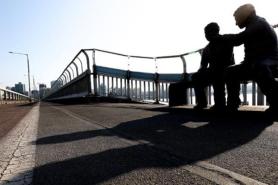
Throughout Korea's history, individuals grappling with mental illness carried a stigma and were often considered untreatable, relegated to the shadows of society. Before the adoption of modern Western medicine-based medical systems about a century ago, those suffering from mental illness were locked away or were "beaten" to their senses, leading to unfortunate and tragic outcomes.
Although the stigma that was put on mentally ill people was lifted, many patients feel that still some stereotypes exist. Some choose not to utilize the national health insurance to cover expensive psychiatric counseling sessions or treatment, even though the country's health insurance covers almost every disease. A survey of South Koreans aged between 19 and 79, conducted by the National Mental Health Center run by the welfare ministry in 2021, showed that 27.8 percent of people with at least one kind of mental illness including alcohol addiction, nicotine addiction, depression, and anxiety, during their lifetime. However, only 12 percent underwent professional treatment.
The nation's suicide rate was 25.2 per 100,000 people last year, far exceeding the average of the Organization for Economic Cooperation and Development (OECD) at 10.6.
The Ministry of Health and Welfare unveiled its plan on December 5 to offer counseling for around one million by 2027. The national mental health checkups, currently administered every ten years for people aged 20 to 34, are set to be increased to a biennial schedule. The objective is to facilitate the early detection of diverse conditions, including depression and schizophrenia.
The ministry aims to halve the current suicide rate within 10 years. A compulsory education program against suicide for 16 million South Koreans will be adopted starting in July 2024. The number of workplace trauma centers for employees who have experienced severe accidents at work, as well as those facing mental health challenges due to emotional labor will be increased to 23 next year from the current 14. Joint response centers, featuring collaboration between mental health experts and police officers, will be established in 17 regions across the country to provide a 24-hour emergency response.
Copyright ⓒ Aju Press All rights reserved.




